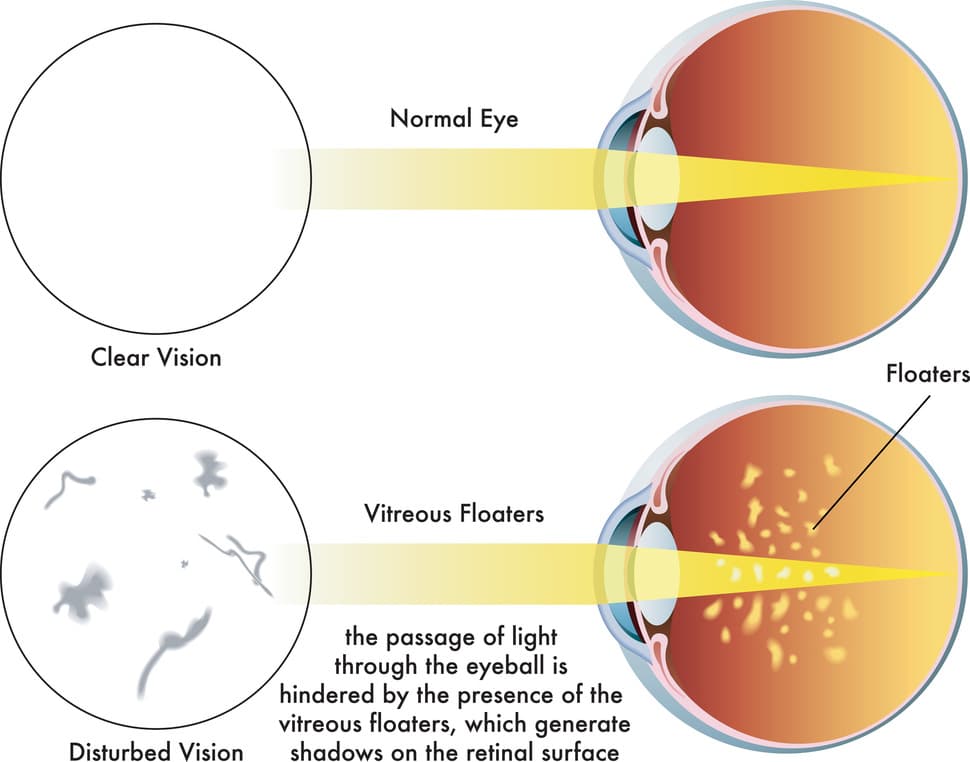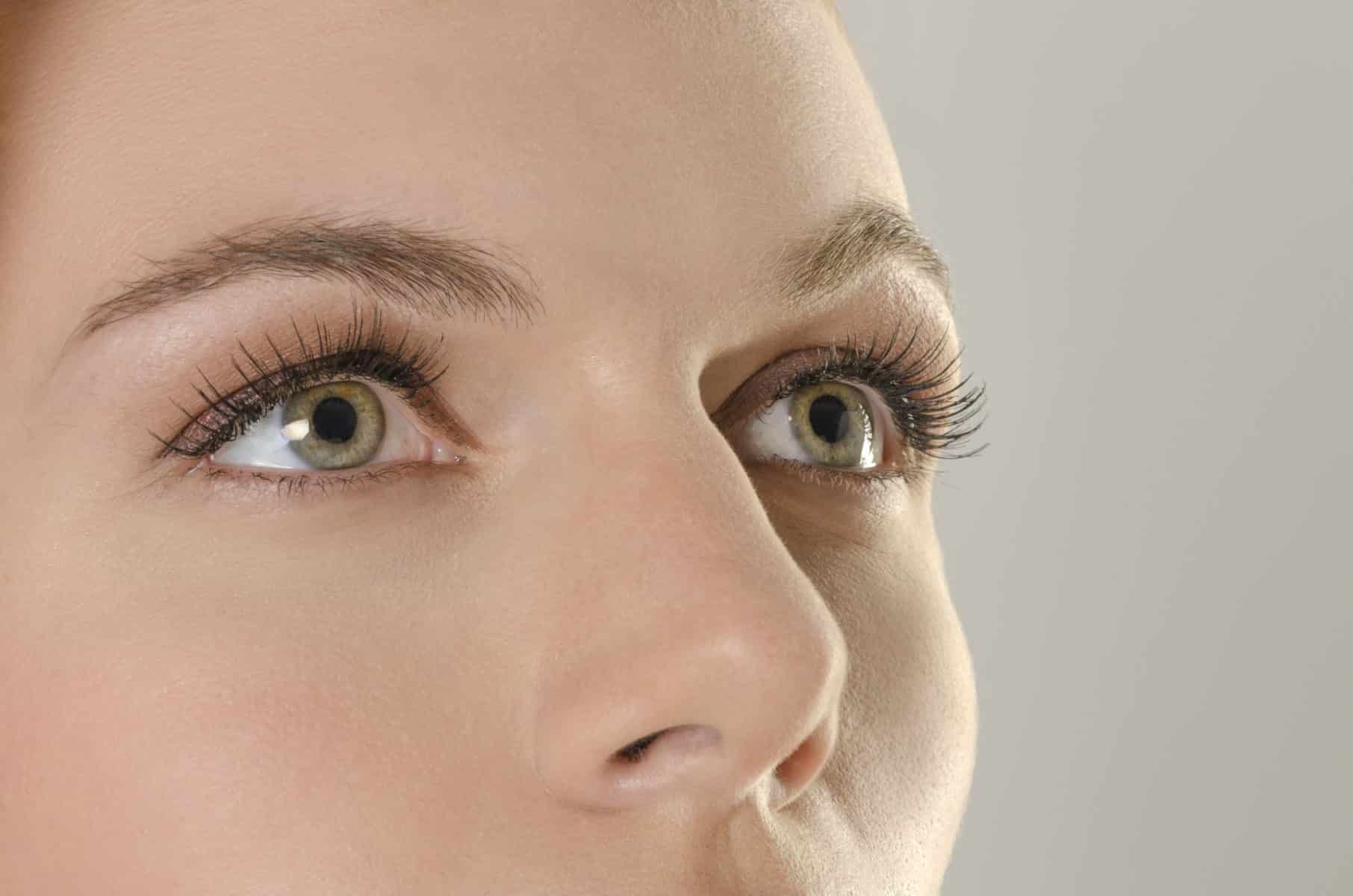As you are looking at a white wall or a white screen, you find yourself batting away a fruit fly. But it doesn’t go anywhere. It just stays there, right in front of your eyes, irritating you to the core.
Suddenly, you see a dozen fruit flies, all clustered around your eyes. Realizing they aren’t actually fruit flies but your vision playing tricks on you, you panic and close your eyes, rubbing them to make whatever it is go away. But once you open them, you find that they’re still there!
“What is happening to me?” you think in a cold sweat.
Don’t worry. What’s going on is likely a very common problem that most people refer to as having eye floaters. After a while, you probably won’t even see them anymore. … Oh, they’ll still be there. You’ll just learn to block them out.
Still, here is what you need to know about them in a nutshell for your peace of mind, and also to help you identify if you have a more serious problem in need of care.
Table of Contents
The Basics About Eye Floaters
If you’re a “glass half full” kind of person, you might even consider floaters to be a sign of wisdom. You see, in theory they’re similar to the wrinkles on your skin. Just like your skin and bones, as you age, your eyes do too.
Due to the changes in your eyes over time, the gel-like substance inside your eyes becomes more liquidy. Fibers within this substance, called vitreous, clump up and cast shadows on your retina. Those shadows are what you see in front of you – the specs known as floaters.
If your eye floaters are especially troublesome to you, or if you are seeing so many that they are causing you to have poorer vision, a number of treatment options are available. They include surgery to remove the vitreous and replace it with a solution intended to help your eye keep its shape; however, new floaters can develop after surgery. Another procedure is the use of a laser to break up the clumps, but some people who undergo this procedure notice no change in their site.
It is important to note that if your floaters come on suddenly and drastically and are coupled with other issues like light flashes or loss of vision, you should seek medical help immediately, as you could be experiencing a more serious condition.
Floaters: Why Do They Appear?
To understand floaters, it helps to know a little about the inside of your eye.
- The Vitreous Humor: Your eyeball is filled with a clear, gel-like substance called the vitreous humor. In childhood, this gel is uniform and firmly attached to the retina (the light-sensitive tissue at the back of the eye, like the film in a camera).
- The Aging Process (Vitreous Liquefaction): As we age, the vitreous begins to shrink and thin out, becoming more liquid. The once uniform collagen fibers within the gel clump together.
- The Floater: When these tiny, condensed clumps of fiber (or sometimes small pieces of cellular debris) float within the liquid vitreous, they cast shadows onto the light-sensitive retina. These shadows are what you perceive as specks, threads, or cobwebs.

What Happens Over Time
If you start to see floaters and are told that they’re a sign of aging, your first reaction will probably be to wonder if you’ll end up having so many that they will cloud over your eyesight. You may worry that you will have poor vision in your senior years.
The bad news is that it is possible. The good news is that it would take most people another lifetime before that happens. In other words, it’s very rare, so you don’t need to be overly concerned about the future of your vision just because you’re seeing floaters.
If you are only starting to experience eye floaters, it can be disconcerting, so contact your local eye doctor at one of our Michigan Eye Institute locations to ask all the questions that are on your mind. If the floaters are especially numerous or troublesome to you, make an appointment for an eye examination to see if a medical procedure is right for you.
Comments are closed.




